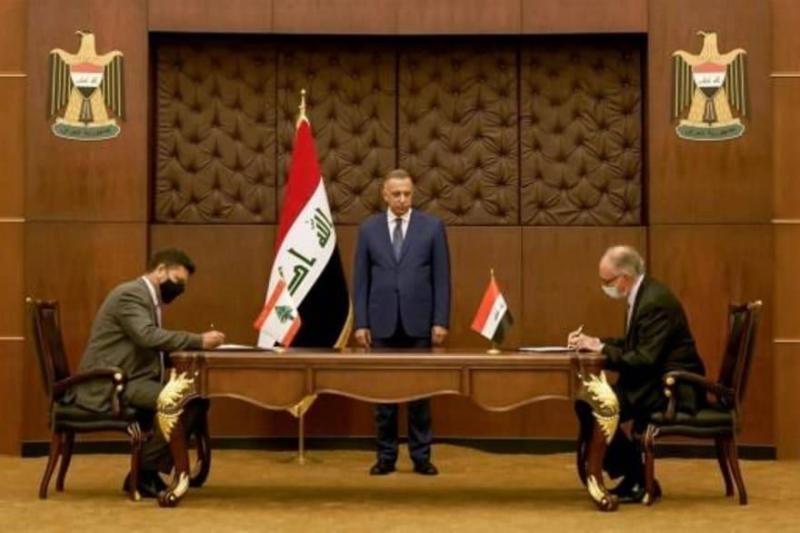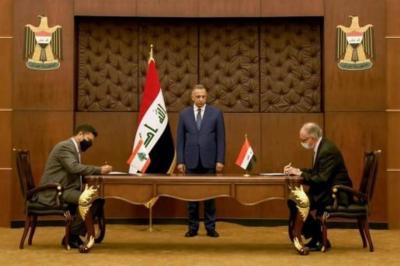On Saturday, Iraq and Lebanon signed an energy exchange agreement in Baghdad, under which Iraq will provide Lebanon, currently facing its worst economic crisis, with heavy fuel oil in exchange for "services and goods," according to a statement from the Iraqi Prime Minister's office. The statement clarified that Lebanon will receive one million tons of heavy Iraqi fuel oil.
During a press conference at Beirut Airport upon his return from Iraq, Lebanese Energy Minister Raymond Ghajar stated that the mechanism of this agreement is "complicated," explaining that the agreement allows for "the purchase of one million tons of heavy fuel oil from Iraq for the benefit of the Electricité du Liban," in exchange for "consulting and medical services."
However, the heavy fuel oil is not directly usable in Lebanese power plants, and thus Lebanese authorities will seek to procure another type of fuel from other suppliers that is more compatible with local plants. Ghajar noted that payments to these suppliers would not be made in hard currency but will be compensated with Iraqi fuel oil instead.
He added, "We are not the first to resort to this exchange; many companies and countries engage in such types of bartering." The minister indicated that this quantity would cover one-third of the fuel needs of Electricité du Liban for a certain period, hoping it would be sufficient to cover the "summer period," adding, "We can provide around nine to ten hours of electricity (per day) at most during a four-month period."
In April, the two countries signed a preliminary agreement stipulating that Baghdad would supply oil to Lebanon in exchange for Lebanese support in the field of medical services, particularly by sending Lebanese experts and specialized medical teams to assist in managing new medical facilities in Iraq.
The agreement signed on Saturday is crucial for Lebanon, which is experiencing its worst energy crisis in history. For over a month, its power plants have almost entirely stopped functioning, leading to power outages of up to 22 hours a day due to a shortage of the necessary fuel to operate electricity generation plants and the diesel used for private generators, compounded by the depletion of dollar reserves at the Lebanese Central Bank and delays in opening credits for imports.
Meanwhile, despite being the second-largest oil producer in the Organization of the Petroleum Exporting Countries (OPEC), Iraq imports about one-third of its gas and energy needs from its neighbor Iran, due to a battered energy sector resulting from years of conflict, corruption, and neglect. The country plunged into darkness last month after Iran halted its energy supply, claiming the Iraqi Ministry of Electricity failed to settle over six billion dollars in dues.
Like the Lebanese, a large number of Iraqis also rely on electricity generators. In contrast, Lebanon has long been considered the "Hospital of the Arab World" due to its advanced healthcare services in the private sector and the competency of its doctors, most of whom are graduates from Europe and the United States. However, the Lebanese healthcare sector has deteriorated, with hundreds of doctors leaving the country amid the deepening crisis, while Lebanese hospitals now lack essential supplies to combat further waves of the COVID-19 pandemic, as warned by the director of one of Lebanon's largest public hospitals on Saturday.




